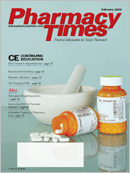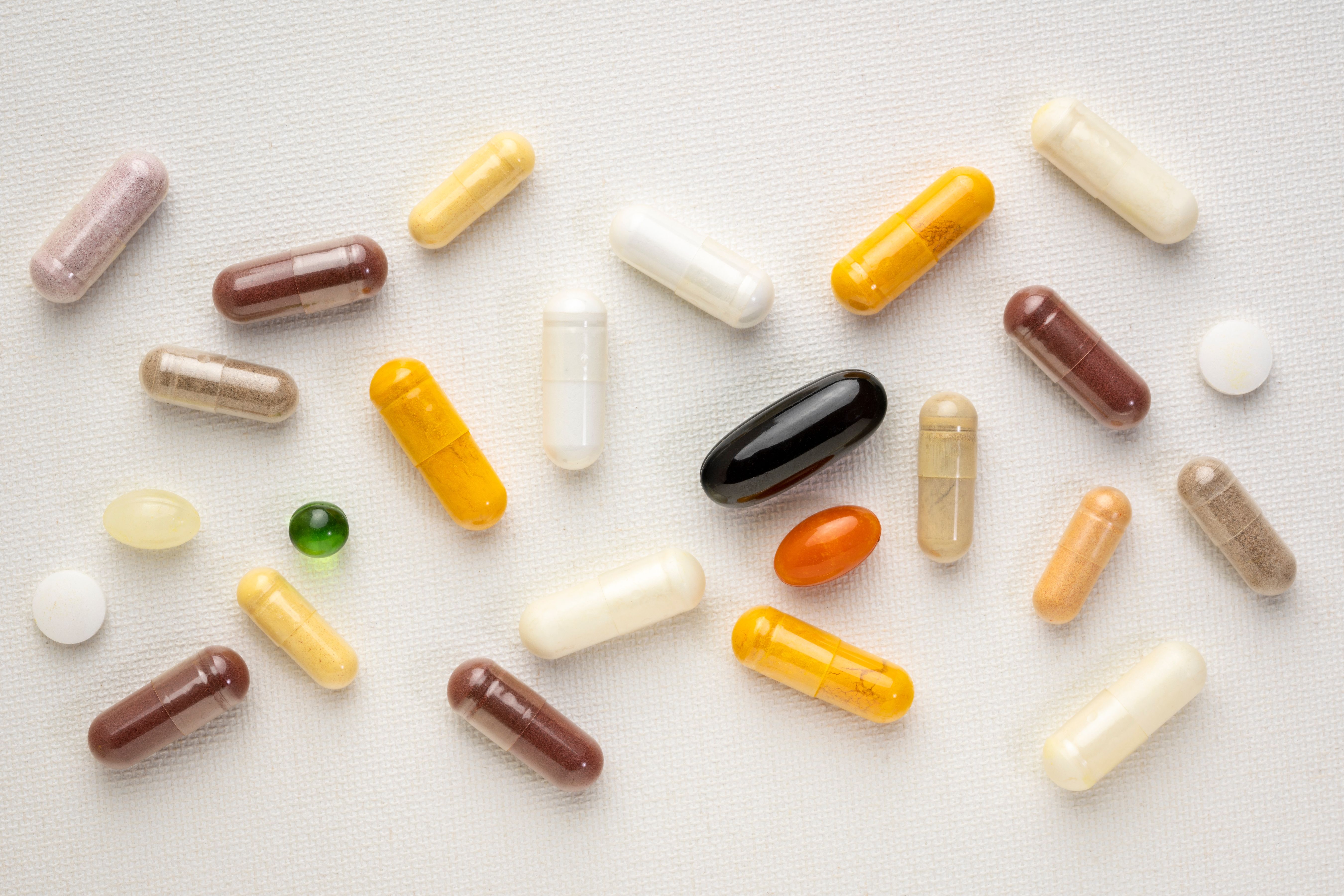Publication
Article
Pharmacy Times
Transplant Immunosuppressants: Common Drug Interactions
Author(s):
Transplantation affords patients the opportunity for a more normal life. Yet, patients often are burdened by the number of medications required after surgery. These medicines include immunosuppressants to prevent organ rejection, prophylactic anti-infectives, stress ulcer prophylaxis, and other maintenance medications for underlying chronic diseases. During the first months to a year posttransplant, a typical drug regimen for a recipient consists of >8 medications.1,2
The necessity for polypharmacy increases the potential for serious drug interactions. Drug interactions, by definition, occur when substances alter the nature, the magnitude, or the duration of the pharmacologic effect of another drug.3 These substances include prescription medications, OTC products, and dietary or herbal supplements.1,4 Drug interactions can occur due to a variety of mechanisms. They are classified as pharmacokinetic or pharmacodynamic in nature. Pharmacokinetic interactions involve changes in drug absorption, distribution, metabolism, or excretion, and pharmacodynamic interactions involve effects on drug concentration.2
Interactions affecting drug metabolism are common and typically involve the cytochrome P-450 enzyme system (CYP450)?most notably 3A4, 2C19, and 1A2.1 Phase 3 trials focus on assessing a drug's safety in combination with other agents. It is usually not until postmarketing surveillance that clinically significant interactions become realized.4 With the increasing number of new agents on the market, it can be challenging for physicians to recognize potential drug interactions without the help of pharmacists.5
Trends in Immunosuppression
Typical transplant regimens include 2 to 3 agents for long-term immunosuppression: a calcineurin inhibitor (cyclosporine, tacrolimus); an anti-metabolite (azathioprine, mycophenolate mofetil, mycophenolic acid); and sometimes a corticosteroid (prednisone) (Table). Some centers may include the use of sirolimus or other investigational agents in their drug regimen. Although many transplant facilities are exploring the use of either calcineurin or steroid minimization/withdrawal protocols, to date there is no single-agent regimen that successfully prevents organ rejection in all transplant populations.6,7
Antifungals
Fungal infections are estimated to occur in 5% of kidney transplant recipients and up to 40% of liver recipients.8 The azole antifungals (ketoconazole, fluconazole, itraconazole, voriconazole) are well-documented to inhibit the clearance of the calcineurin immunosuppressants, often producing toxic drug levels. Of the azoles, fluconazole has the least effect on drug levels, enabling many transplant centers to use this interaction to reduce the amount of calcineurin required to prevent rejection.1 Caution is advised with coadministration of voriconazole and sirolimus secondary to significant drug interactions. Caspofungin, an echinocandin antifungal, appears to induce tacrolimus, resulting in an average 20% decrease in immunosuppressive effect.8 Micafungin, the newest agent in this class, does not produce this drug interaction.9
Antibiotics
Bacterial infections are among the leading complications occurring posttransplant.10 Whereas numerous agents are available for the treatment of these infections, one must keep in mind the potential for drug interactions. Macrolide antibiotics (erythromycin, clarithromycin) and the new ketolide (telithromycin) are strong CYP3A4 inhibitors, reducing the clearance of immunosuppressants. Azithromycin, commonly used to treat respiratory infections, is a safe and often recommended alternative for transplant patients, because it is not extensively metabolized through CYP450. Rifampin, often used for resistant staphylococcal infections, is a strong inducer that may result in subtherapeutic drug levels. Aminoglycosides (gentamicin, tobramycin, amikacin) and streptogramin derivatives should be used with caution secondary to additive nephrotoxic effects.10
Antihypertensives
Hypertension is a common comorbidity affecting a large proportion of transplant patients. Of the many different approved antihypertensives, only calcium channel blockers complicate immunosuppressive management. Nondihydropyridine calcium channel blockers (verapamil, diltiazem) are well-known inhibitors of immunosuppressant metabolism. Diltiazem is used frequently as a calcineurin-sparing agent, although considerable interpatient variability exists, making therapeutic management difficult.11 In addition, certain dihydropyridine calcium channel blockers (nifedipine, nicardipine) inhibit drug metabolism, often resulting in immunosuppressant toxicity.12
Antidepressants
Posttransplant depression is associated with medication noncompliance, and treatment may be complicated by multiple drug interactions. Most selective serotonin reuptake inhibitors (SSRIs)? such as fluvoxamine, fluoxetine, paroxetine, sertraline, and escitalopram?are weak inhibitors of CYP3A4. Sertraline and escitalopram are considered the antidepressants of choice because of their minimal drug interactions and side effects. Nefazodone, a mixed SSRI and norepinephrine reuptake inhibitor, is a potent CYP3A4 inhibitor and should be avoided in transplant patients due to the potential for severe toxicity. Other antidepressants?such as venlafaxine, bupropion, mirtazapine, tricyclics, and monoamine oxidase inhibitors?are not recommended as first-line agents because of problematic side effects.13
Grapefruit Juice
Grapefruit juice, a staple in many Americans' diets, is a known inhibitor of CYP3A4. Several studies have evaluated the use of grapefruit juice in transplant recipients on cyclosporine. These studies have demonstrated variable and unpredictable increases in drug levels.14 The same type of interaction is noted to occur in patients receiving tacrolimus and sirolimus. Therefore, patients should be educated to avoid grapefruit products to prevent drug toxicity.15,16
Herbals
Herbal supplements have become increasingly popular in recent years, although known and unknown interactions pose a devastating risk of organ rejection for transplant patients. Numerous case reports cite interactions between calcineurin inhibitors and St. John's wort, a popular herbal used for the treatment of depression.17 Studies show that St. John's wort induces the activity of CYP3A4, resulting in increased clearance of immunosuppressants. Rosemary, taken orally for dyspeptic disorders and hypertension, may increase cyclosporine concentrations by increasing its bioavailability.18
Other herbals with immune-stimulating effects?such as echinacea, astragalus, ginseng, licorice, and alfalfa sprouts?should be avoided.19 It is important for pharmacists to advise transplant patients of the unknown risks associated with using herbals and transplant medications together.
Other Interactions
A variety of other medications are known to interact with transplant immunosuppressants. Some of the more problematic interactions occur with antiseizure or antiretroviral medications. Common antiepileptic drugs?such as phenytoin, carbamazepine, and phenobarbital?are known strong inducers of the CYP450 system. Coadministration of these agents with calcineurin inhibitors may result in reduced immunosuppression.20 The use of HIV protease inhibitors in combination with calcineurins warrants immunosuppressant dose reduction and careful monitoring of serum levels.21
Whereas this article has highlighted some common interactions, this by no means is a complete listing of all the possible transplant drug interactions. There are, however, a few ways for patients to reduce their risk for potential drug interactions. Patients should use one pharmacy so as to keep accurate records of all prescription medications; they should inform all physicians of current prescription, OTC, supplement, or herbal usage; and they should take an active part in learning about the warnings for the medications they consume.4 To ensure patient safety, when drug interactions with transplant medications cannot be avoided, dose adjustments and careful monitoring should be employed by the transplant team.
Dr. Cross is a transplant clinical pharmacist at Piedmont Hospital in Atlanta, Ga.
For a list of references, send a stamped, self-addressed envelope to: References Department, Attn. A. Stahl, Pharmacy Times, 241 Forsgate Drive, Jamesburg, NJ 08831; or send an e-mail request to: [email protected].







